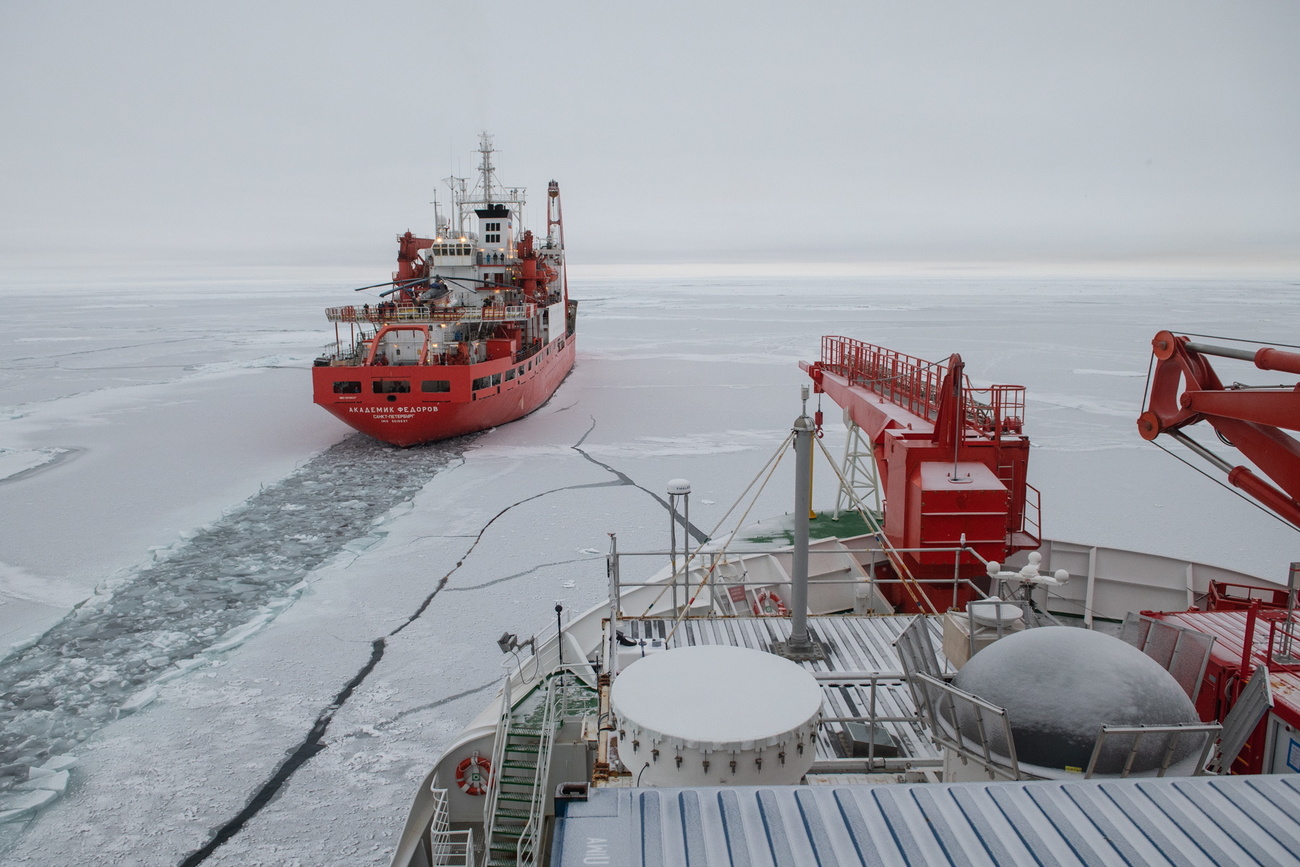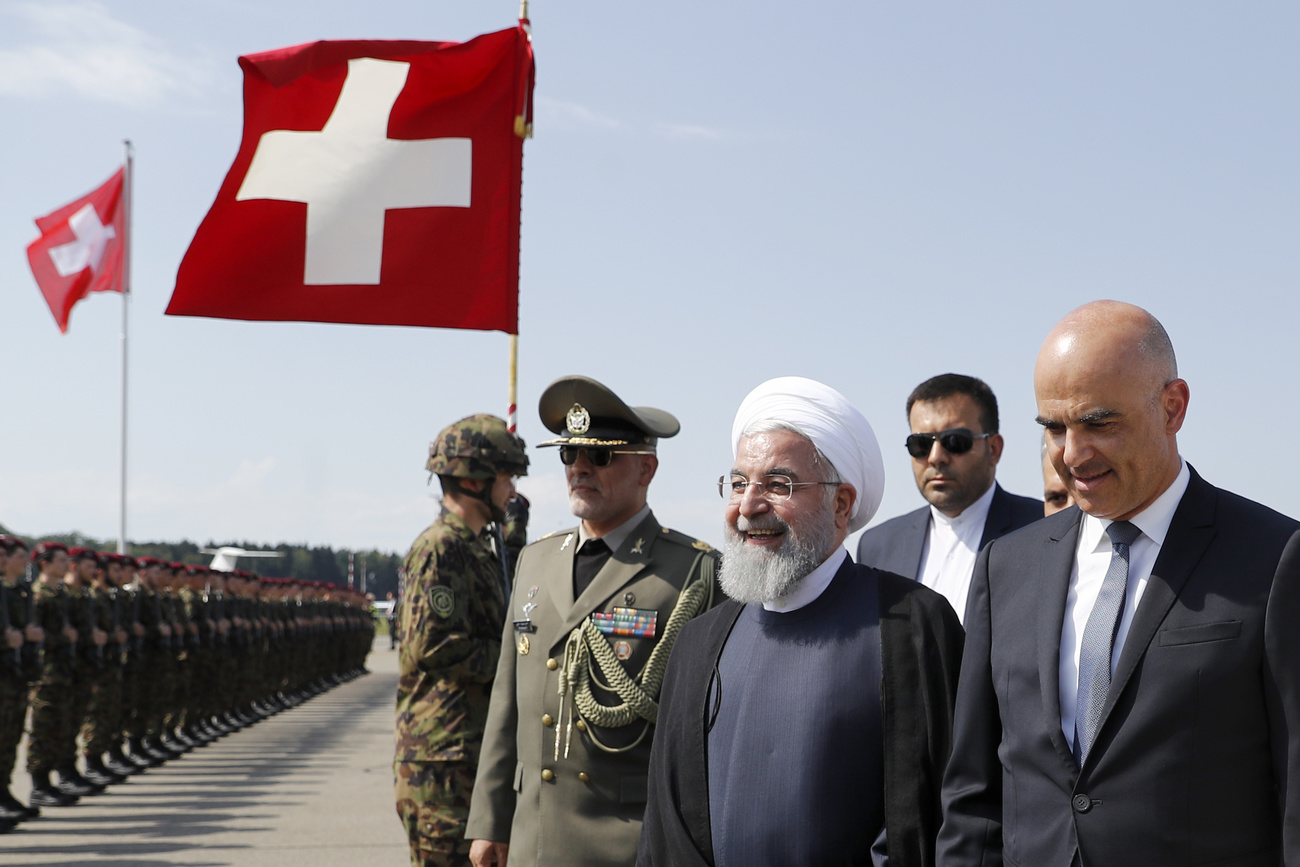
Arctic science collaboration is on thin ice

As the Russia-Ukraine war drags on, the future of Arctic research is growing more uncertain. How are scientists and diplomats coping? A recent panel in Geneva highlighted the challenges.
The Arctic is warming faster than any other parts of the world. Sea ice is melting and there is more open water, which means that more gases and aerosols from the sea are entering the Earth’s atmosphere and warming it further.
But in addition to having a major influence on the climate and weather at lower latitudes, the Arctic is also a key geopolitical arena. The territories of eight nations fall within the Arctic Circle: The United States, Canada, Iceland, Norway, Sweden, Denmark, Finland, and Russia.
“In the 1970s and 1980s we saw that the science was leading policy decisions and international relationships,” said Larry Hinzman, assistant director for polar sciences at the White House Office of Science and Technology Policy. “That still occurs, even today. But the scientific collaboration with Russia is very difficult, making the collaboration with other countries even more important,” said Hinzman, who was a panelist at the annual summit hosted by the Geneva Science and Diplomacy Anticipator (GESDA)External link this October.
Russia currently holds the chairmanship of the Arctic Council, an intergovernmental forum promoting cooperation in the Arctic. The future of the council, which Hinzman described as “an important avenue towards peace,” is unclear. Norway is in line to chair it in 2023.
The region has a long history of military tension dating back to the Cold War, noted Rasmus Bertelsen, a professor of northern studies at the Arctic University of Norway. He cites fast-attack US submarines docking close to Tromsø, the Russian Northern Fleet around the “excessively militarised” Kola Peninsula as well as US strategic bombers flying over the Barents Sea.
“The Arctic is chock full of nuclear weapons,” said Bertelsen, “So there’s probably no area that’s more key to nuclear stability between the US and Russia.” He also said that science diplomacy was ultimately about pursuing state interests, adding that “polar science is definitely strategic science”.
View from the Third Pole
As a small country, Switzerland has an interest in the Arctic remaining a peaceful place open to research for all, said Alexandra Baumann. She serves as the Swiss ambassador to the Arctic in her role as head of the Prosperity and Sustainability DivisionExternal link at the State Secretariat. “In the short-term we hope that we’ll see working groups active again. The Arctic doesn’t have a pause button, and nor should we,” she said.
Switzerland joined the Arctic Council as an observer in 2017. Compared with the full council members, Switzerland is quite a distance from the North Pole. However, there are many Swiss scientists contributing to polar research, and high mountains such as the Alps are referred to as the Third Pole.
There is also a Swiss Polar Institute; SWI swissinfo.ch recently interviewed two of its leading researchers in a new talk show format. Their work has also been affected by the Russian invasion of Ukraine.
You can watch the full conversation with them here:
Edited by Sabrina Weiss

In compliance with the JTI standards
More: SWI swissinfo.ch certified by the Journalism Trust Initiative






























You can find an overview of ongoing debates with our journalists here . Please join us!
If you want to start a conversation about a topic raised in this article or want to report factual errors, email us at english@swissinfo.ch.